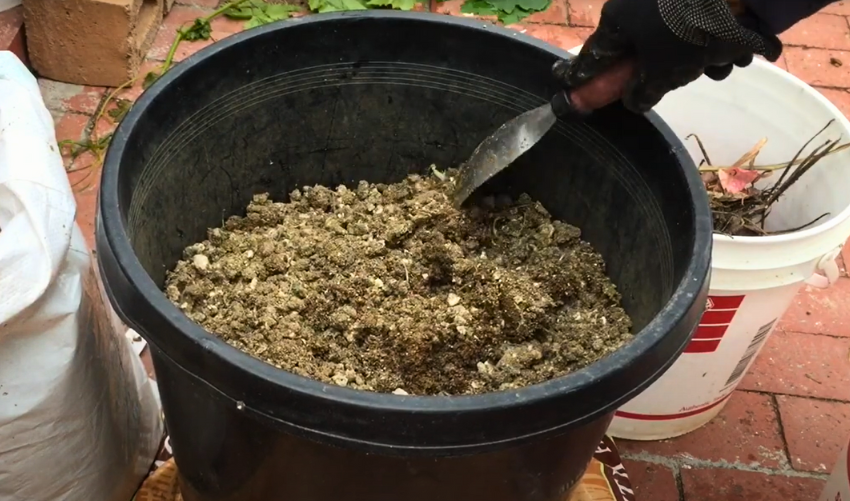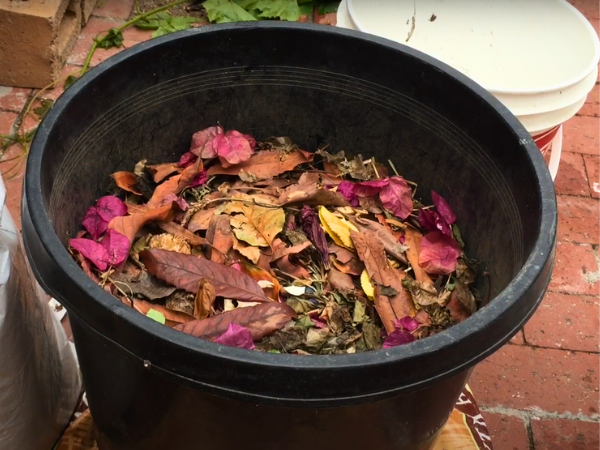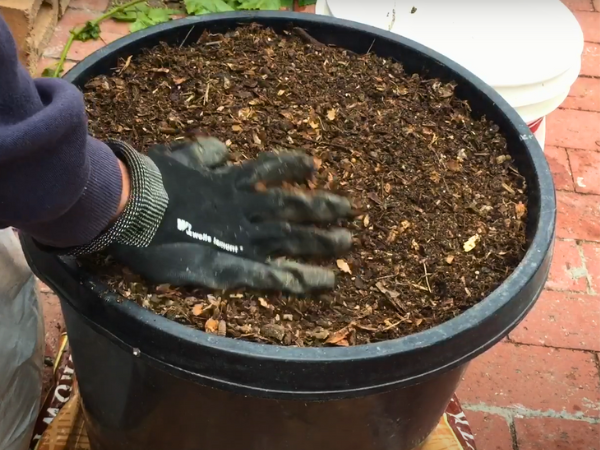Chicken manure is a popular choice for the garden because it is full of nutrients. It contains nitrogen, phosphorus, and potassium, which plants need to thrive.
This guide will explore the benefits of chicken poop, provide helpful tips for using it, and outline necessary precautions to ensure your garden flourishes.
Why Chicken Poop Is Popular Among Gardeners
Many gardeners trust chicken manure to improve plant health and garden productivity. Its natural properties make it an excellent choice for enriching soil.
Natural Fertilizer Rich In Nutrients
Chicken poop is an effective organic fertilizer. It is high in nitrogen, phosphorus, and potassium, essential for plant growth. These nutrients help plants grow strong and healthy.
- Nitrogen: Promotes leaf growth and overall plant vigor.
- Phosphorus: Enhances root development and flowering.
- Potassium: Improves drought resistance and disease tolerance.
Chicken manure stands out for its nutrient density. It is a fantastic choice for organic gardeners.
Supports Soil Health And Microbial Activity
Chicken poop greatly benefits soil health. It improves soil structure and boosts beneficial microbes. Healthy soil leads to healthier plants and better yields. The organic matter in chicken manure enhances water retention.
Here are some key benefits for soil health:
- Increased Microbial Activity: Chicken manure fosters a thriving ecosystem of beneficial bacteria and fungi.
- Improved Soil Structure: It helps create a crumbly texture, allowing air and water to penetrate easily.
- Enhanced Nutrient Cycling: Microbes break down organic matter, making nutrients available to plants.
To maximize these benefits, consider these tips:
- Mix chicken manure into the top few inches of soil.
- Use it as part of your compost pile for an extra nutrient boost.
- Test soil regularly to monitor nutrient levels.
By integrating chicken poop into your gardening routine, you support not just individual plants but the entire ecosystem in your garden.
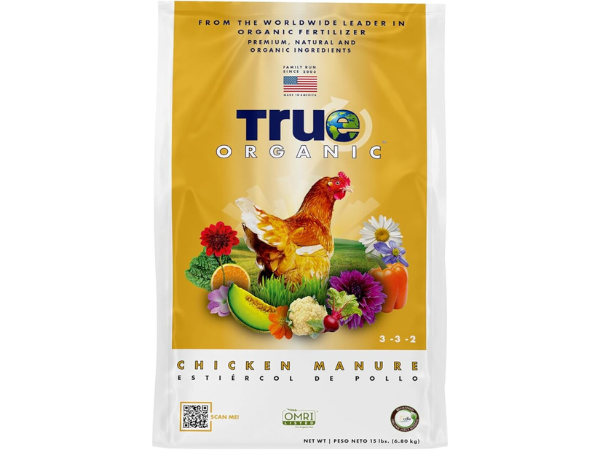
The Benefits Of Using Chicken Poop In The Garden
Understanding the benefits helps gardeners make informed choices. Here are some key advantages of using chicken poop in your garden.
Encourages Stronger, Faster Plant Growth
It is nitrogen-rich manure that promotes lush leaves and stems. This nutrient boosts plant growth significantly. Plants absorb nitrogen to produce chlorophyll, which helps them thrive.
Using chicken manure can lead to:
- Healthier root systems
- Increased resistance to pests and diseases
- Enhanced flowering and fruiting
Here’s a quick comparison of different types of manure:
| Type of Manure | Nitrogen Content | Breakdown Time |
|---|---|---|
| Chicken Manure | 1.0 – 1.5% | 2-3 months |
| Cow Manure | 0.5 – 1.0% | 3-6 months |
| Horse Manure | 0.5 – 0.8% | 6-12 months |
Chicken manure breaks down quickly. This means plants get nutrients faster. Healthy plants lead to a thriving garden.
Long-term Improvement Of Soil Fertility
Chicken poop not only aids in immediate growth but also improves soil health over time. It adds organic matter to the soil. This organic matter is essential for maintaining soil structure.
Using chicken manure helps:
- Enhance soil aeration
- Improve drainage
- Increase microbial activity
As chicken poop breaks down, it enriches the soil season after season. This long-term benefit boosts soil fertility. Here’s how it works:
- Chicken manure decomposes and releases nutrients.
- Soil organisms thrive on these nutrients.
- Plants access these nutrients for growth.
Incorporating chicken poop into your garden can transform soil quality. It creates a sustainable ecosystem for plants.
How To Safely Use Chicken Manure In Your Garden
Using chicken manure in your garden can be beneficial. However, safety is key. Raw manure can burn plants. Composting chicken poop reduces risks and odors.
Composting Chicken Poop Before Use
Composting chicken manure is a vital step. It transforms raw manure into a safe and nutrient-rich soil amendment. Here are some important points:
- Composting takes about 6 months.
- It helps eliminate harmful bacteria.
- It reduces odors that raw manure produces.
To start composting chicken poop:
- Collect fresh manure from your chickens.
- Add straw, leaves, or grass clippings to balance carbon and nitrogen.
- Turn the pile every few weeks to aerate it.
- Monitor moisture levels; keep it damp but not soggy.
- After 6 months, check for dark, crumbly compost.
This compost is safe to use. It enriches soil and helps plants thrive. Remember, never use raw manure directly on plants. It can burn them and cause harm.
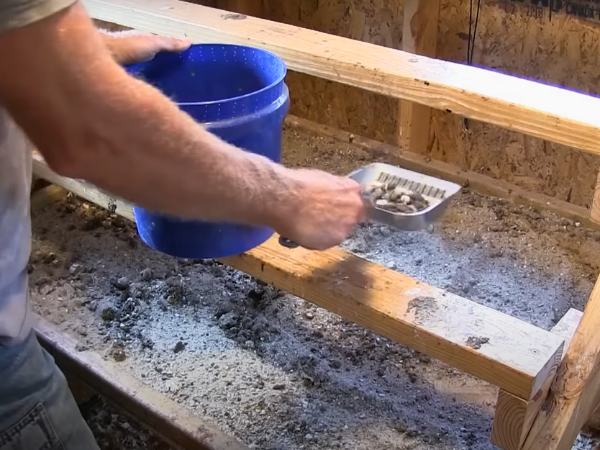
Proper Application Techniques
Applying chicken manure correctly ensures healthy plants. Here are simple techniques:
- Use aged manure. It is safer for plants.
- Apply in early spring to prepare for planting.
- Mix into compost piles for balanced nutrients.
Follow these steps for proper application:
- Spread aged manure evenly on the soil surface.
- Work it into the top few inches of soil.
- Avoid applying it directly to young plants.
- Water the area after application to activate nutrients.
Keep in mind that too much manure can harm plants. Balance is key. Use chicken manure wisely for the best garden results.
Precautions And Considerations
This section will explore the precautions and considerations you need to be aware of before using chicken poop in your garden.
Risk Of Pathogens And Over-fertilization
Fresh poop can contain bacteria that may harm plants and soil. These pathogens can cause diseases in your garden. It’s essential to handle chicken manure safely.
- Always compost chicken poop before use.
- Maintain proper composting temperatures to kill pathogens.
- Use aged manure to reduce the risk of bacteria.
Over-fertilization is another concern. Chicken manure is rich in nitrogen. Too much nitrogen can lead to excessive growth and weak plants. Signs of over-fertilization include:
- Yellowing leaves
- Stunted growth
- Leaf burn
To avoid these issues, consider the following tips:
- Dilute fresh manure with water before applying.
- Apply in small amounts regularly rather than all at once.
- Test your soil to determine nutrient needs.
By taking these precautions, you can enjoy the benefits of chicken poop while minimizing the risks.
Not All Plants Respond The Same
Not every plant thrives on chicken manure. Some plants may benefit from the rich nutrients, while others may struggle.
For instance, leafy vegetables like lettuce and spinach often respond well to chicken manure. They need nitrogen to grow strong and healthy. On the other hand, root vegetables like carrots and potatoes may not fare as well. They can suffer from excess nitrogen, leading to poor root development.
Consider the following guidelines:
| Plant Type | Response to Chicken Manure |
|---|---|
| Leafy Greens | Positive |
| Root Vegetables | Negative |
| Fruit-bearing Plants | Varies |
Always test a small area before widespread application. Avoid using chicken manure on seedlings or delicate plants without proper dilution.
Tips And Tricks Chicken Poop As Garden Fertilizer
Here are some tips and tricks to use chicken poop as fertilizer effectively.
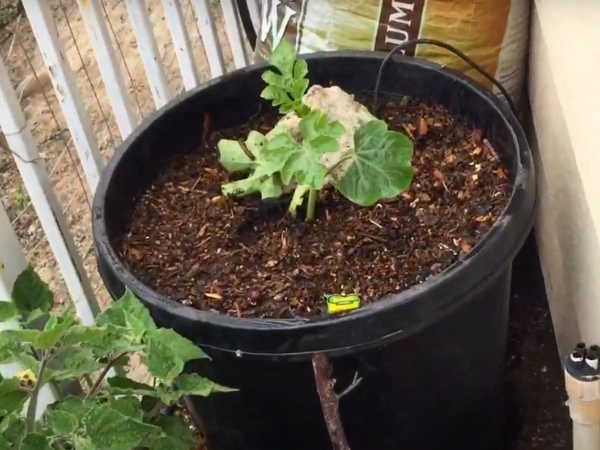
Sustainable And Effective When Used Properly
Chicken poop is a sustainable and effective fertilizer if used correctly. However, fresh chicken manure can be too strong and may harm plants. Here are some tips to use it safely:
- Compost First: Always compost chicken manure before using it. This process reduces harmful pathogens and makes nutrients available.
- Use in Moderation: Too much chicken manure can lead to nutrient burn. A little goes a long way.
- Mix with Other Materials: Blend chicken poop with other compost materials for balance.
Consider this table for a quick reference on nutrient content:
| Nutrient | Content in Chicken Manure |
|---|---|
| Nitrogen | 1.1% |
| Phosphorus | 0.8% |
| Potassium | 0.5% |
Chicken manure is a great eco-friendly fertilizer if handled with care. Always remember to follow these tips for the best results.
Know Your Source
Knowing the source of your chicken poop is crucial. Use manure from healthy chickens fed a clean, balanced diet. This ensures the fertilizer is safe and effective. Here are some points to consider:
- Check for Disease: Avoid manure from sick chickens to prevent spreading disease.
- Quality of Feed: Healthy feed leads to healthy manure. Look for chickens that eat organic feed.
- Local Sources: Local farms often provide high-quality chicken manure. Build relationships with them.
Always ask about the chicken’s living conditions and diet. This information helps you choose the best fertilizer for your garden.

